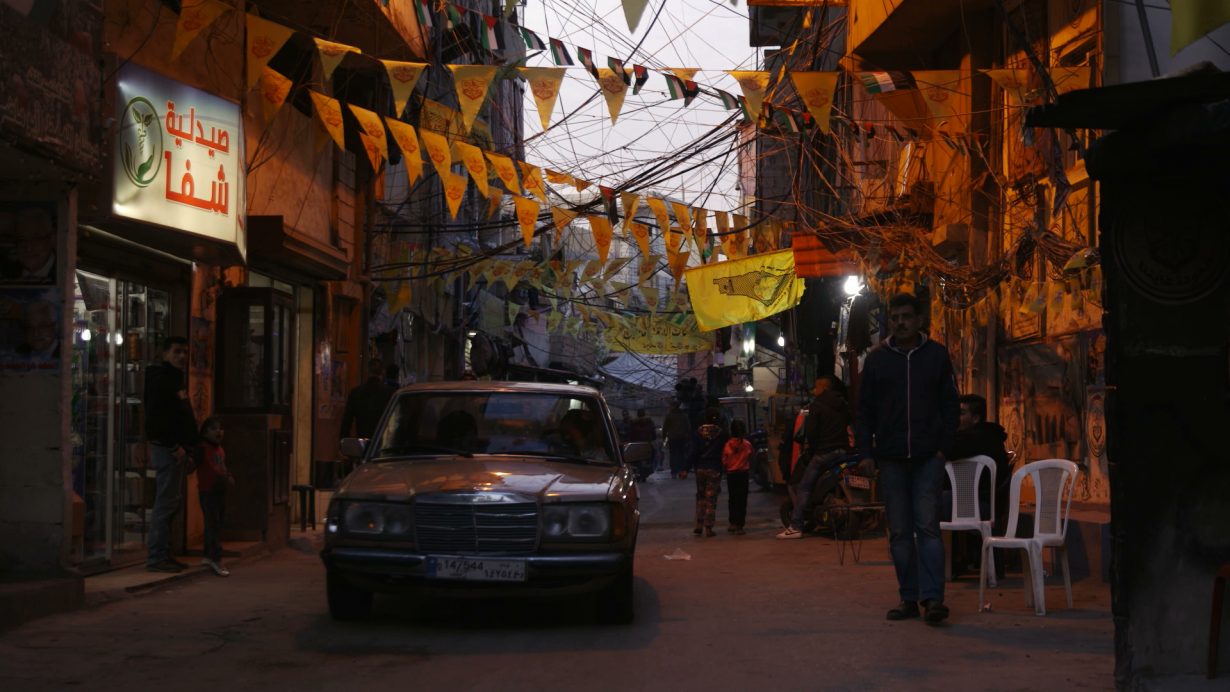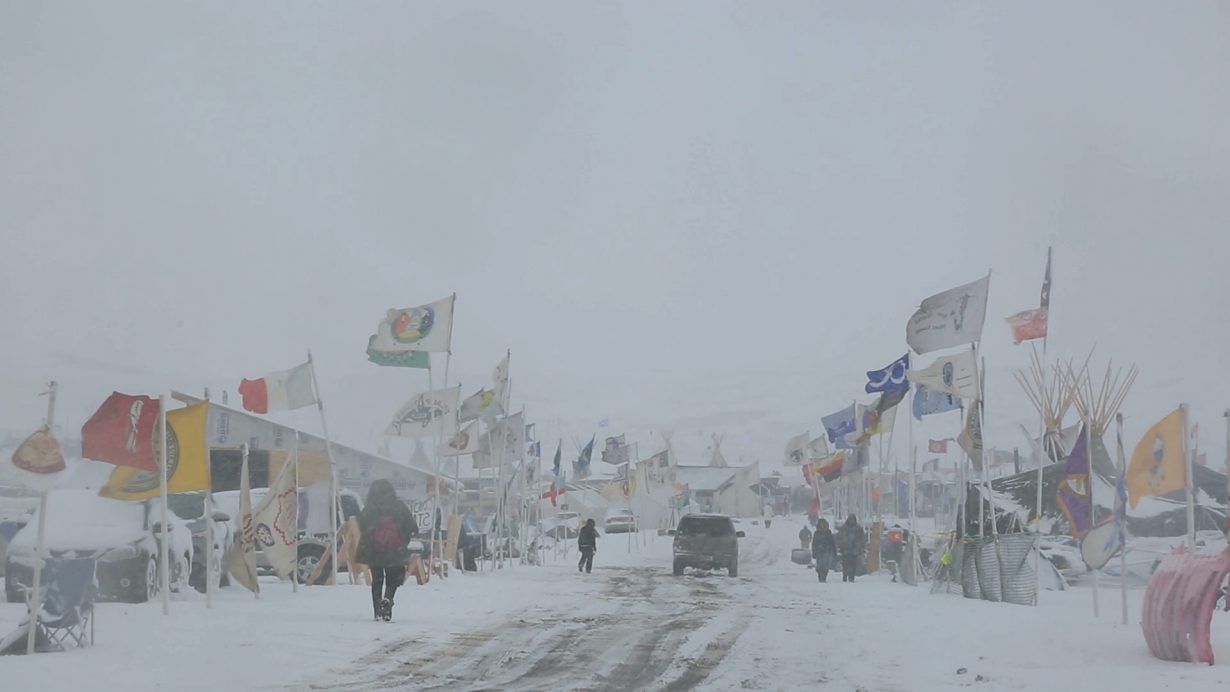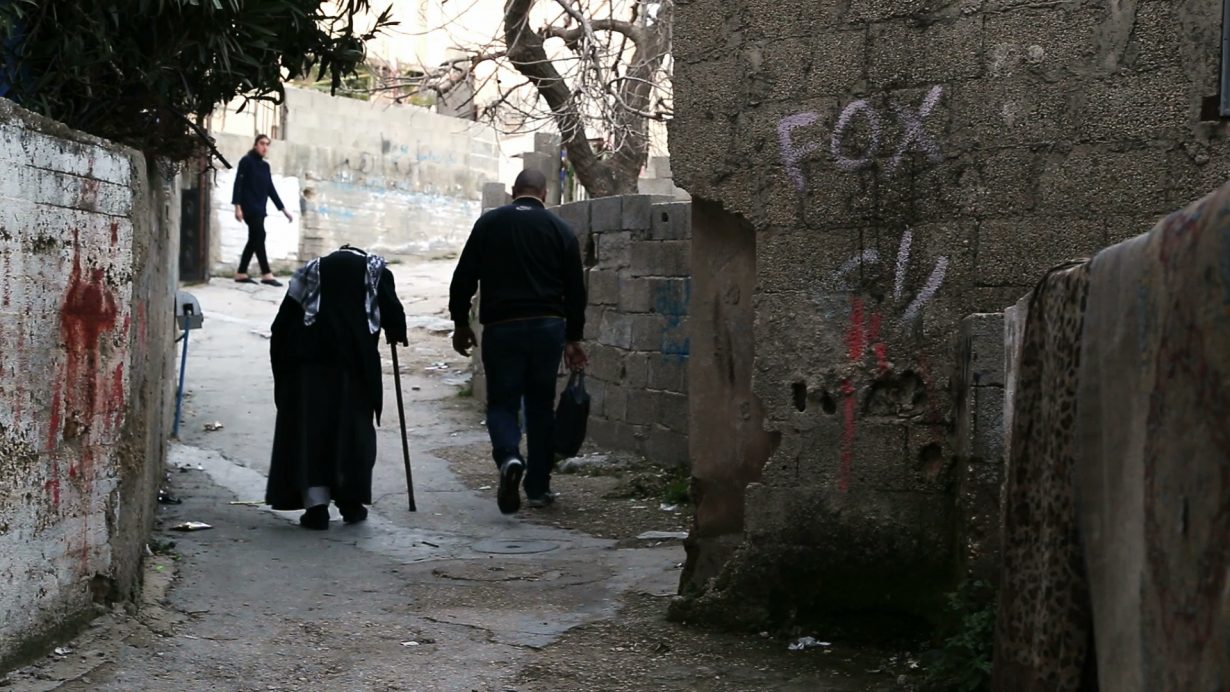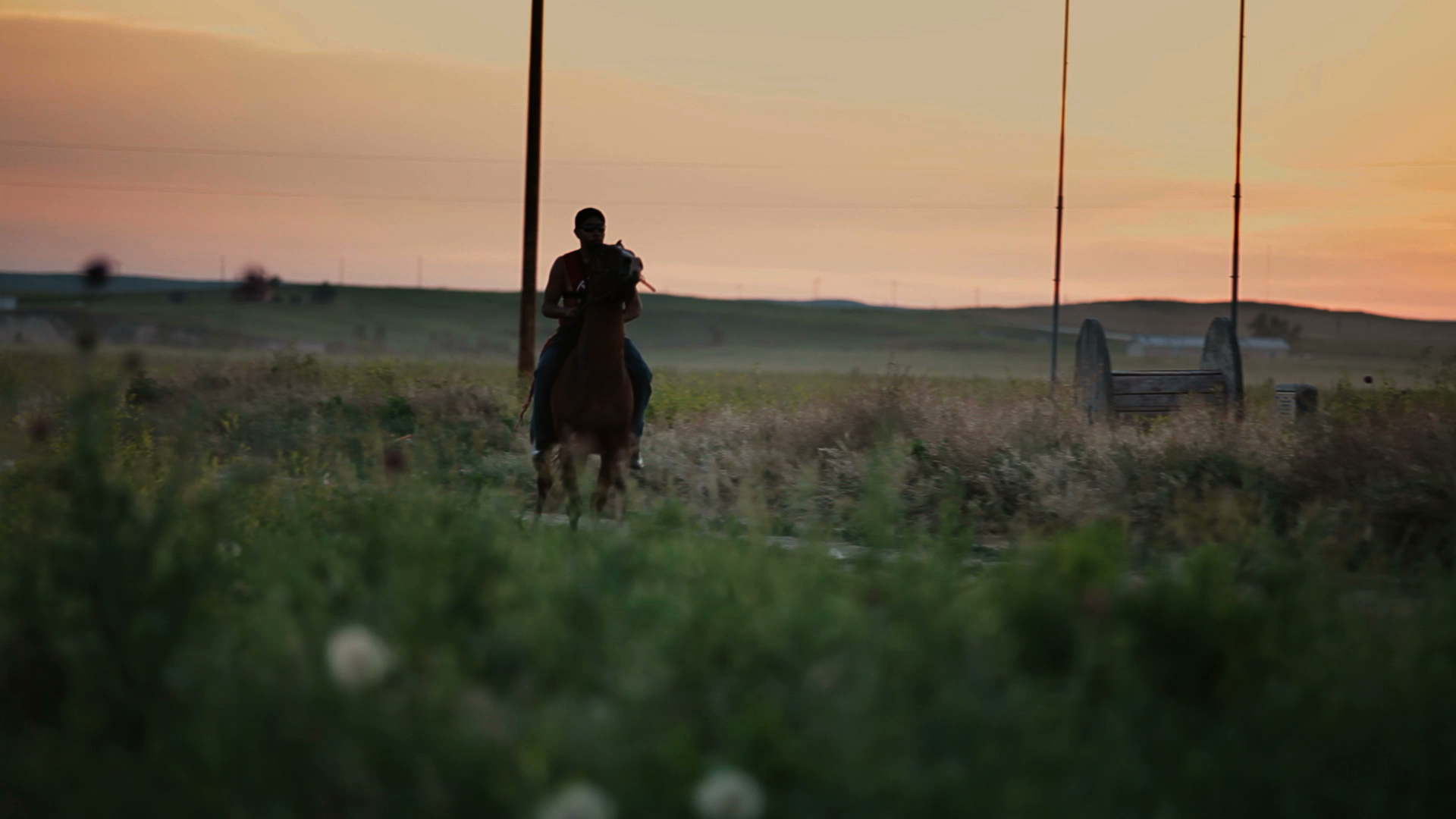‘The Native and the Refugee’ is a documentary project bringing together refugee camps and reservations, asking what forms of affinities can exist between them
‘It goes beyond a solidarity in terms of how it is used in the English language,’ one Lakota interviewee clarifies, when describing the kinship she feels towards Palestinians struggling for their liberation. ‘It is more like a spiritual connection that our peoples have.’ (We Love Being Lakota)
Filmed between 2014 and 2017, Spaces of Exception (2019) is the culmination of ‘The Native and the Refugee’, a long-term multi-media project. Filmmakers Matt Peterson and Malek Rasamny have produced a series of short documentaries such as We Love Being Lakota (2015), Bethlehem’s Walls (2015),The Way of the Longhouse (2015) and All My Relations (2016), vignettes that explore life on specific American Indian reservations and in different Palestinian refugee camps. The feature-length film Spaces of Exception brings together their years of research. Constructed in distinct chapters, it moves between reservations in Arizona, New Mexico, New York and South Dakota, and camps in the West Bank and Lebanon, populations that live outside of or in parallel to the norms of the nation-state structure. Each segment is its own intimate portrait of a community, closely following a handful of its members, while sidestepping the kind of voyeuristic, anthropological gaze that can often plague documentaries focusing on the plight of the dispossessed. The film’s structure allows for a narrative to emerge that is not entrenched in comparison and equivalency but instead centres the specificity of each context.

Borrowing Italian philosopher Giorgio Agamben’s concept of the ‘state of exception’ whereby an extension of the state’s power – justified and applied as a temporary, emergency measure – allows for ‘the emergency to become the rule’, Peterson and Rasamny examine the refugee camp and the reservation as sites that exist both within and without the nation’s boundaries. Both are constructed as liminal spaces where displaced populations are contained indefinitely, but their inhabitants have consistently rejected this state of limbo, instead centring sovereignty, with its distinct connotations, in their struggles by advocating for recognition in the present rather than in promised future. The continued presence of Palestinian refugees and American Indians in these spaces, their refusal to assimilate, emerges as the ultimate form of resistance. In the camps in Lebanon, where according to one young woman, Palestinian ‘identity itself is an indictment’, the insistence on refugeehood is both a recognition of the camp as a dynamic existent community and a continued commitment to their right of return. American Indians express a similar steadfastness and constancy; a young man from the Navajo Nation explains that in his language ‘there is no word for relocation, to be relocated means to disappear and never to be seen again’. Their connection to the land is embodied and rooted; the struggle is about land, but it is also about much more than land.
As Spaces of Exception highlights, the indeterminate nature of these quasi- or non-sovereign spaces is one of the ways in which precarity is maintained. Both the camps and the reservations are underserved by the state that surrounds them; they often lack resources and basic infrastructure and exist in dire economic conditions, with high rates of unemployment and spread of disease. But throughout the film viewers are struck by the immediate differences between these two sites of struggle. In Lebanon and the West Bank, the urban refugee camps feel cramped and densely populated. As the camera weaves through narrow, dingy alleys, electric cables hang loose from the buildings like nooses. A sense of confinement prevails; it is difficult to see the sky through the density of the buildings and any connection to the surrounding landscape is obstructed. By contrast, the wind bellows through the open expanse of the reservations as tribe members struggle to survive off the land. However, here too access to the land is restricted, with borders and fences redrawing the natural landscape. Fundamental connections have been fragmented, the earth’s surface punctured repeatedly with no regard for its sacred integrity.


The texture of time is distinctly different in each of these contexts, both in terms of the unfolding of the occupation of these communities’ lands and its longevity. American Indian communities operate within what one interviewee describes as an ‘extended timeframe’, their occupation and genocide enacted over centuries through different modes of assimilation and annihilation, treaties made and broken as they are pushed on to smaller and smaller plots of dirt to allow for extractive operations unauthorised by the community. While both occupations are ongoing and expanding, the colonialisation of Palestine and the expulsion of Palestinians in 1948 was executed with greater urgency as the last gasps of nineteenth-century European imperial ambitions. There are still, for now, refugees who were born in their homeland and recall the beginnings of the Nakba. Dispossessed of their lands, Palestinians’ connection to their language and culture has not been severed by the same assimilationist strategies of education that were afflicted on their American Indian counterparts. Unlike the American Indian tribes, who insist that they are a ‘people’, the modern nation [al-watan] looms large in the Palestinian imagery. Rather than underplay these incongruities, Spaces of Exception allows each struggle its integrity, highlighting that these distinctions are not in tension with a shared affinity and solidarity. As viewers we are encouraged to make connections while appreciating the specificity of each context. The camp and the reservation do not have to map on to each other exactly to enable a shared sense of struggle.
In fact, it is these differences that emerge between the camp and the reservation that are perhaps more instructive than the similarities. On the one hand, they reveal the distinct and historically specific manifestations of settler colonialism, the varied forms through which (colonial) violence is exacted on colonized populations. They alert us to both the transnational and the malleable, shapeshifting nature of colonial projects. On the other hand, these distinctions ultimately lead to us to reexamine our (mis)understanding of decolonial solidarities. In his 2019 article, ‘From the River to the Sea to Every Mountain Top: Solidarity as Worlding Making’, historian Robin D. G. Kelley reminds us that transnational solidarity is built on more than ‘analogies’ and ‘chains of equivalence’; these movements have historically foregrounded ‘shared principles of liberation’ rather than focusing on a politics of identity and parallel experiences of oppression. This distinction seems especially critical at a moment when many of us are trying to find a common language for organising and resisting.
Dina Ramadan is a writer and critic based in New York. She teaches at Bard College and the Center for Curatorial Studies.
Spaces of Exception is screening on 13 January in Philadelphia; 18 January at SOAS in London; 26 January at the New School, New York; and 9 February at STUK CinemaZED in Leuven, Belgium, among others.
